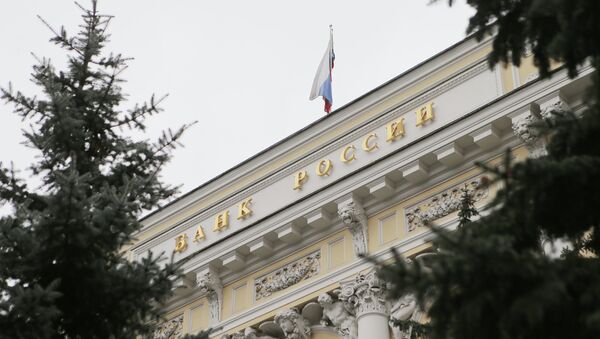The most recent data from the Central Bank shows that net private capital outflows by banks and companies reached $77.5 billion in the first nine months of 2014 compared with $45.7 billion for the same period a year ago.
Capital flight from Russia is dominated by heightened uncertainty and a depreciating ruble. Oleg Kouzmin, analyst at Renaissance Capital in Moscow, thinks for now it is a huge constraining factor for the country’s economic growth.
“We expect capital outflow to intensify to $100 billion in 2014, which compares to $60 billion in the previous year. Definitely, this is a headwind for growth and for domestic investment activity,” Oleg Kouzmin said.
According to the World Bank analysts, massive capital outflows led to a deterioration of the capital and financial account balance and a decrease in net international reserves. Russia’s capital and financial accounts balance worsened to a deficit of $75.3 billion (7.8 percent of GDP) in the first half of 2014 compared to a deficit of $21.2 billion (2.1 percent of GDP) in the first half of 2013. Also, high geopolitical uncertainty led to a more than doubling of net capital outflows from the private sector in the first half of this year. However, many analysts say some of those capital outflows might return to Russia in the form of foreign direct investment. Renaissance Capital’s Oleg Kouzmin goes even further in his projections.
“Before the recent sanctions were introduced, Russian companies and some Russian tycoons considered putting money on their accounts in Swiss banks as an absolute risk-free investment. …Now the story has changed, and they should also consider the risk that due to intensified geopolitical tensions this money might be frozen in some cases. So it might put some cap on capital outflow from Russia in the longer run,” Oleg Kouzmin said.
For its part, the Central Bank might consider “non-standard” mechanisms to ensure economic stability if the country’s capital outflows intensify. As the Russian central bank chief, Elvira Nabiullina, said in this case the bank would have to shift its focus toward ensuring financial stability, using various instruments, including “non-standard” means.



